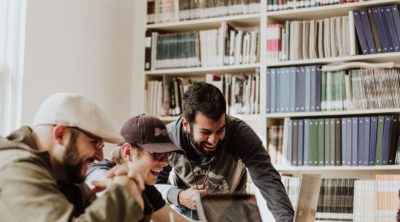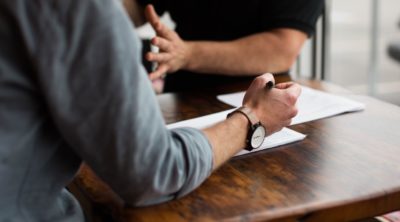Anyone who wants to become a better photographer probably understands that the best way to do so is to take a lot of pictures. While it is important to read guides and consider taking courses, to better understand the essentials of strong photography, you need to practice.
That doesn’t mean you can’t boost your photography skills in other ways. After all, you don’t have the opportunity to take pictures all the time. However, when you’re not out in the world getting shots, you can still improve your understanding of photography in the following simple (but often overlooked) ways.
How to Boost Your Photography Skills Without Taking Pictures
Pay Attention to Shot Composition in Films & TV
A cinematographer is the film equivalent of a photographer. Although they shoot moving subjects instead of still subjects, they need to understand the same principles of lighting, composition, lens choice, and more.
Keep this in mind when watching movies and TV. When a shot from a movie or show is particularly impressive, take a few notes about why that might be. When a shot looks relatively generic in comparison, ask yourself why. Over time, you’ll begin to better understand what makes one shot strong and another weak, all while enjoying your favorite entertainment.
Consider Shot Composition When Browsing Social Media
Social media has given rise to the “everyone can be a photographer” mindset. That said, anyone who spends a decent amount of time on social media knows that not everyone is equally skilled at taking pictures.
This is another instance in which you can learn about shot composition while participating in a leisure activity. When browsing photos on Instagram and Facebook, take notes about the differences between those that impress you and those that don’t, the same way you would when watching movies and TV.
Pay Attention to the Effects of Lighting
Odds are good you see many different types of lighting in your day-to-day life. For instance, at home, you may have a number of light fixtures. Depending on which fixtures are currently on, where they are in the house, and how much natural light is coming in from outside, the effects will vary throughout the day.
Pay attention to this as much as possible. For example, perhaps at one point in the day, your living room is flooded with light because you’ve turned a number of fixtures on. Maybe at another point in the day, you have fewer fixtures on.
Again, the effect will be different. More importantly, if you stop to ask yourself which you prefer, you’ll probably discover that one effect is more striking than the other.
Ask yourself why. This will help you better understand the crucial role that lighting plays in photography. A subject that looks unappealing in one light can suddenly take on a new character with just a few minor changes.
The main point to take from all this is simple: you don’t always need to take pictures to boost your overall understanding of photography concepts. As these examples prove, you can become a stronger photographer even when you’re simply going about your daily routine.


